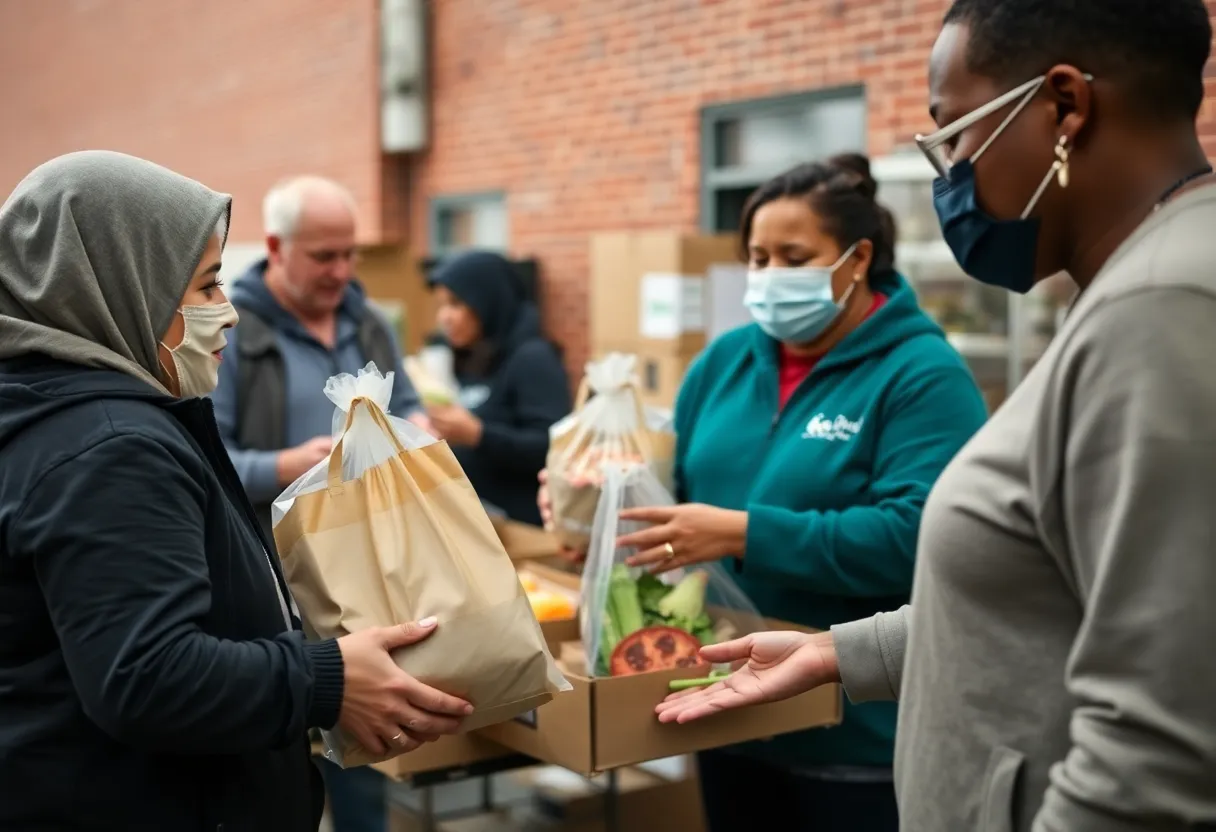News Summary
The impending cessation of federal SNAP benefits due to the government shutdown could leave over 1 million residents in Massachusetts without vital food assistance. Governor Maura Healey has called for community support as the state braces for significant reductions in food aid starting November 1, highlighting the urgent need for donations and a potential United Response Fund to support affected families. The USDA warns that insufficient funds will hinder SNAP benefits, which are crucial for low-income households facing food insecurity.
Roxbury, Massachusetts – The upcoming cessation of federal Supplemental Nutrition Assistance Program (SNAP) benefits due to the ongoing government shutdown could leave more than 1 million residents in Massachusetts without essential food assistance, according to announcements from Governor Maura Healey. The potential freeze on SNAP funding set for November 1 comes as Massachusetts is among multiple states poised to face significant reductions in food aid starting next Saturday.
The U.S. Department of Agriculture (USDA) has indicated that the government shutdown will result in “insufficient funds” to cover full SNAP benefits for the month of November. In light of this impending crisis, Governor Healey has urged community support and emphasized the urgency for residents in need of food assistance.
SNAP benefits play a crucial role in enabling low-income families to purchase groceries. At a recent news conference, Healey highlighted the alarming statistic that one in three residents in Massachusetts faced food insecurity in 2024, as reported by the Greater Boston Food Bank. In response to the potential loss of SNAP support, a partnership has been formed with local food banks and organizations, including Project Bread and the United Way, to help impacted families.
A newly established United Response Fund aims to generate donations specifically for food assistance during this challenging time. Healey urged community members and local businesses capable of making donations to step forward, stressing the critical need for funds to support organizations that work to ensure food availability and accessibility for those facing hardship.
In her address, the Governor also called for President Trump to release contingency funds necessary to sustain SNAP benefits throughout the duration of the government shutdown. She pointed out how this decision will disproportionately affect vulnerable populations, including children, the elderly, and individuals with disabilities. Currently, 32% of those set to lose SNAP benefits are children, while 31% are individuals with disabilities, and 26% are seniors.
Erin McAleer, CEO of Project Bread, has indicated that families will confront serious hardships without food assistance. Unfortunately, state funding cannot compensate for federal SNAP benefits, which amount to roughly $240 million each month in Massachusetts. The implications of halting these benefits extend beyond individual recipients to impact local grocery stores and farmers who are dependent on SNAP revenue.
The government shutdown, which began on October 1, has resulted from stalled negotiations between Senate Democrats and House leaders over funding issues. While Massachusetts faces potential SNAP disruptions, other nearby states such as New Hampshire and Vermont are also exploring measures to maintain food aid amidst similar concerns regarding the shutdown.
In an effort to provide clarity, the USDA had previously advised states to refrain from communicating about SNAP benefit procedures due to uncertainty surrounding funding. On average, SNAP beneficiaries receive approximately $187 per month. Despite the challenges presented by the potential cutoff of these vital benefits, the Center on Budget and Policy Priorities has identified a $5 billion contingency fund that could be available for emergency food assistance if needed during the shutdown.
Massachusetts has made strides to combat food insecurity through initiatives such as a program ensuring free school meals for all students, but these measures incur significant costs. Anti-hunger advocates in the state are rallying support and urging officials to fully fund SNAP to mitigate the immediate and long-term impacts of halted benefits. The consequences of not providing SNAP assistance are anticipated to resonate not just among recipients but throughout the broader economy and community welfare as well.
Deeper Dive: News & Info About This Topic
- CBS News
- Wikipedia: Supplemental Nutrition Assistance Program
- WCVB
- Google Search: SNAP benefits Massachusetts
- NBC Boston
- Encyclopedia Britannica: Nutrition
- Telegram
- Google News: food assistance Massachusetts
- Cape Cod Times

Author: STAFF HERE BOSTON WRITER
The BOSTON STAFF WRITER represents the experienced team at HEREBoston.com, your go-to source for actionable local news and information in Boston, Suffolk County, and beyond. Specializing in "news you can use," we cover essential topics like product reviews for personal and business needs, local business directories, politics, real estate trends, neighborhood insights, and state news affecting the area—with deep expertise drawn from years of dedicated reporting and strong community input, including local press releases and business updates. We deliver top reporting on high-value events such as Boston Marathon, Head of the Charles Regatta, and Boston Harborfest. Our coverage extends to key organizations like the Greater Boston Chamber of Commerce and Associated Industries of Massachusetts, plus leading businesses in finance, biotech, and insurance that power the local economy such as Fidelity Investments, Biogen, and Liberty Mutual Insurance. As part of the broader HERE network, we provide comprehensive, credible insights into Massachusetts's dynamic landscape.





